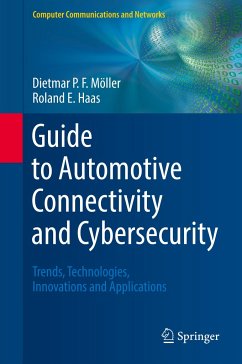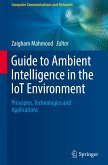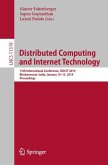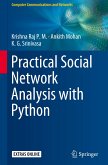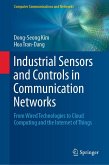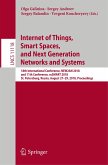This comprehensive text/reference presents an in-depth review of the state of the art of automotive connectivity and cybersecurity with regard to trends, technologies, innovations, and applications. The text describes the challenges of the global automotive market, clearly showing where the multitude of innovative activities fit within the overall effort of cutting-edge automotive innovations, and provides an ideal framework for understanding the complexity of automotive connectivity and cybersecurity.
Topics and features: discusses the automotive market, automotive research and development, and automotive electrical/electronic and software technology; examines connected cars and autonomous vehicles, and methodological approaches to cybersecurity to avoid cyber-attacks against vehicles; provides an overview on the automotive industry that introduces the trends driving the automotive industry towards smart mobility and autonomous driving; reviews automotive research and development, offering background on the complexity involved in developing new vehicle models; describes the technologies essential for the evolution of connected cars, such as cyber-physical systems and the Internet of Things; presents case studies on Car2Go and car sharing, car hailing and ridesharing, connected parking, and advanced driver assistance systems; includes review questions and exercises at the end of each chapter.
The insights offered by this practical guide will be of great value to graduate students, academic researchers and professionals in industry seeking to learn about the advanced methodologies in automotive connectivity and cybersecurity.
Topics and features: discusses the automotive market, automotive research and development, and automotive electrical/electronic and software technology; examines connected cars and autonomous vehicles, and methodological approaches to cybersecurity to avoid cyber-attacks against vehicles; provides an overview on the automotive industry that introduces the trends driving the automotive industry towards smart mobility and autonomous driving; reviews automotive research and development, offering background on the complexity involved in developing new vehicle models; describes the technologies essential for the evolution of connected cars, such as cyber-physical systems and the Internet of Things; presents case studies on Car2Go and car sharing, car hailing and ridesharing, connected parking, and advanced driver assistance systems; includes review questions and exercises at the end of each chapter.
The insights offered by this practical guide will be of great value to graduate students, academic researchers and professionals in industry seeking to learn about the advanced methodologies in automotive connectivity and cybersecurity.
"The authors do a good job of explaining the rapid growth of IC T in the automotive industry. Importantly, the cybersecurity risks associated with this uptake are discussed--issues which the automotive industry, unlike the IT industry, would most likely not have previously encountered. This is a timely red flag to the industry that may help ensure cybersecurity risks are considered and addressed during vehicle systems design." (David B. Henderson, Computing Reviews, October 9, 2020)

